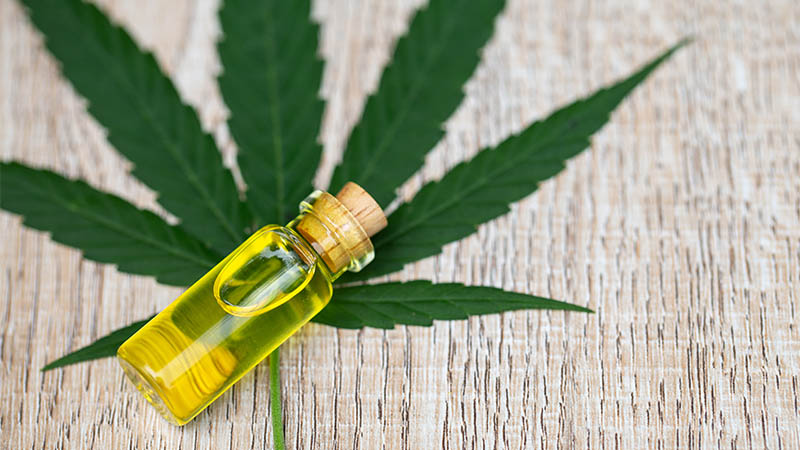What Is CBD?
CBD, short for cannabidiol, is a naturally occurring compound found in the cannabis plant. Unlike THC (tetrahydrocannabinol), CBD does not produce intoxicating effects, making it a sought-after option for those looking to experience potential therapeutic benefits without an altered state of mind. Extracted primarily from hemp, CBD has gained attention for its diverse applications in wellness, skincare, and even pet care.
How CBD Interacts with the Body
The human body has an endocannabinoid system (ECS), a complex network of receptors, enzymes, and endocannabinoids that help regulate essential functions such as mood, sleep, pain perception, and immune response. CBD interacts with this system by influencing CB1 and CB2 receptors, though not in the same way as THC. Instead of binding directly, CBD modulates the receptors’ activity, promoting balance in various physiological processes. This interaction is the foundation of its reported benefits.
Potential Benefits of CBD
-
Support for Stress and Relaxation
CBD has been explored for its ability to promote a sense of calm. By interacting with serotonin receptors, it may help individuals manage daily stressors more effectively. Unlike traditional options that can cause unwanted drowsiness or dependency, CBD offers an alternative that many find gentle yet effective. -
Sleep Enhancement
For those struggling with restlessness or difficulty falling asleep, CBD has been investigated as a potential aid. Its ability to promote relaxation and reduce tension may contribute to improved sleep patterns. While not a sedative, CBD may help create a more favorable environment for restful sleep by addressing underlying factors such as discomfort or racing thoughts. -
Discomfort Management
CBD has been studied for its potential role in easing physical discomfort. Athletes and individuals experiencing occasional soreness often turn to CBD-infused balms, oils, or capsules. While research is still developing, many users report a noticeable improvement in recovery and muscle relief. -
Skin Care Applications
CBD has found a place in the skincare industry due to its calming and moisturizing properties. It is often incorporated into creams, serums, and masks designed to soothe irritation and support skin health. Those dealing with dryness, redness, or occasional blemishes may benefit from CBD’s ability to maintain balance in the skin’s natural barrier. -
Pet Wellness
As interest in CBD grows, so does its use in pet care. Many pet owners explore CBD products to support their animals in areas such as stress management, mobility, and overall well-being. Formulations specifically designed for pets ensure appropriate dosing and safe ingredients.
Different Forms of CBD Products
-
CBD Oil and Tinctures
One of the most popular ways to consume CBD, oil and tinctures offer precise dosing and versatility. These liquid extracts are typically taken sublingually (under the tongue) for faster absorption, making them a preferred option for those seeking efficient delivery. -
CBD Capsules and Edibles
For those who prefer a pre-measured dose, capsules and edibles provide a convenient option. Gummies, chocolates, and infused beverages allow users to incorporate CBD seamlessly into their routine. Since these products pass through the digestive system, their effects may take longer to set in but can last longer compared to other methods. -
Topical CBD
Balms, creams, and lotions infused with CBD are designed for targeted application. This form is particularly popular among individuals looking to address localized discomfort or maintain skin hydration. Unlike ingested CBD, topicals do not enter the bloodstream but interact with receptors in the skin. -
CBD Vape Products
For those looking for rapid effects, vaping CBD is an option. The compound is inhaled and quickly absorbed through the lungs. While this method offers fast onset, it may not be suitable for everyone, and considerations regarding product quality and ingredient safety are essential.
Considerations When Choosing a CBD Product
-
Quality and Sourcing
Not all CBD products are created equal. Opting for brands that provide third-party lab testing ensures purity and potency. High-quality CBD is typically derived from organically grown hemp, free from pesticides and harmful additives. -
Type of CBD Extract
CBD comes in three main forms:
- Full-Spectrum: Contains CBD along with other beneficial cannabinoids, terpenes, and a trace amount of THC (within legal limits). This combination is believed to enhance effects through the “entourage effect.”
- Broad-Spectrum: Similar to full-spectrum but with THC removed, making it a preferred choice for those who want multiple cannabinoids without THC exposure.
- CBD Isolate: The purest form of CBD, free from other compounds, offering a THC-free experience.
-
Proper Dosage
CBD affects individuals differently, and finding the right dosage may require experimentation. Starting with a low amount and gradually adjusting is a practical approach. Factors such as body weight, metabolism, and intended use all play a role in determining the ideal dose. -
Legal and Regulatory Aspects
CBD regulations vary by region. While hemp-derived CBD is legal in many places, restrictions may apply to THC content and product labeling. Checking local laws ensures compliance and a worry-free experience.
The Growing Interest in CBD
CBD’s expanding presence in the wellness industry reflects a shift toward natural alternatives. From personal well-being to skincare and pet support, its applications continue to evolve as research progresses. Understanding its effects, selecting high-quality products, and using it responsibly allows individuals to explore CBD’s potential benefits with confidence.




